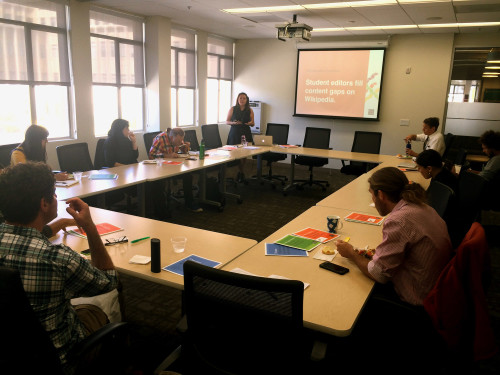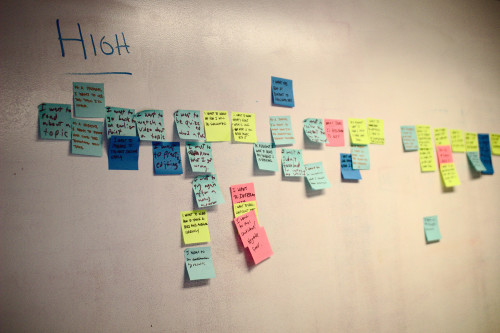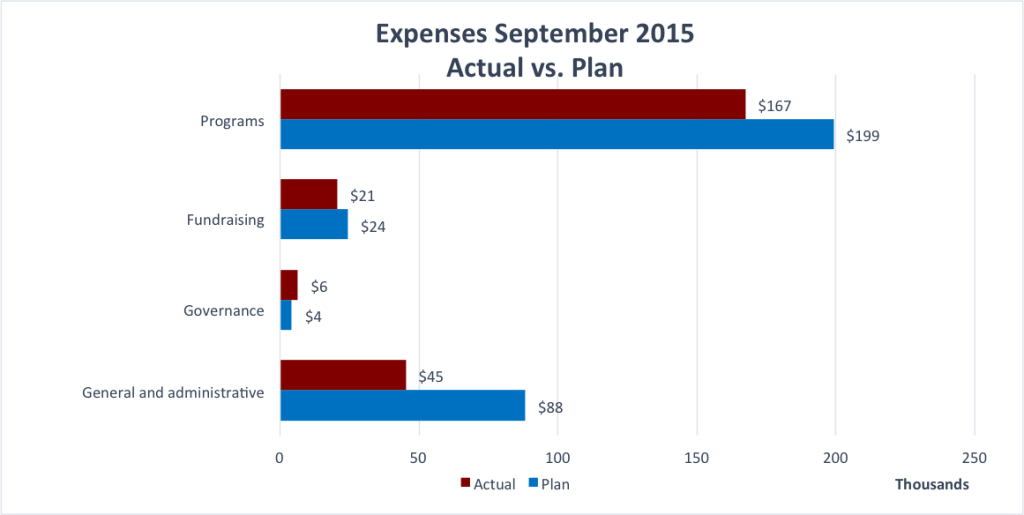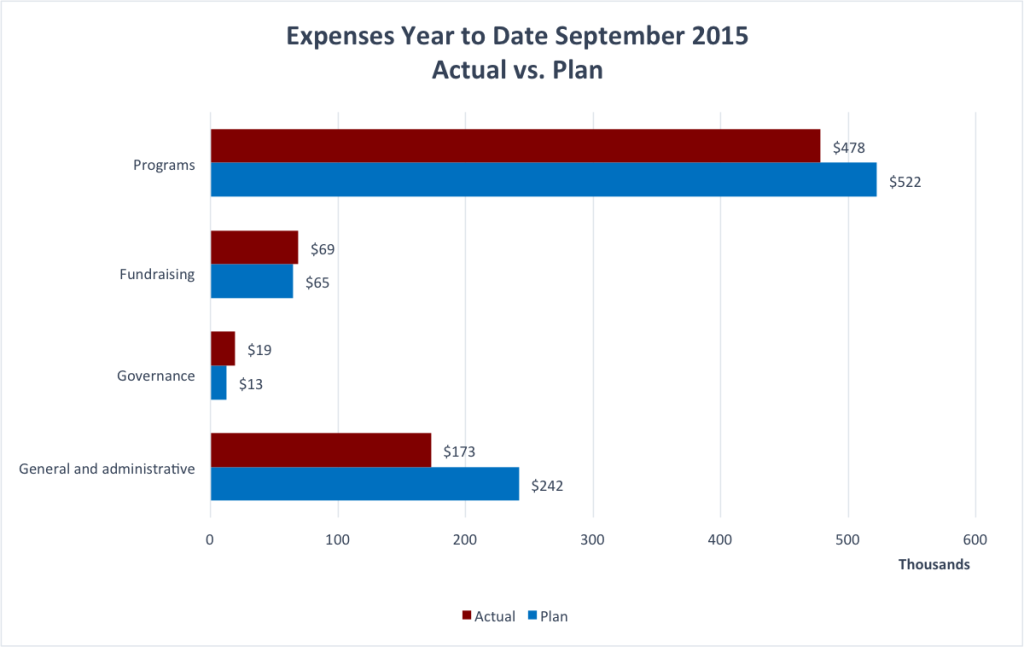Highlights
- The fall 2015 term is underway, and we have 74 new instructors in our Classroom Program. That means our number of new instructors this term exceeds the total number of courses in every term before fall 2014.
- Wiki Education Foundation welcomed its first four Visiting Scholars: Barbara Page and Casey Monaghan at the University of Pittsburgh, working with Ed Galloway, head of the university’s Archives Service Center; Gary Greenbaum at George Mason University, working with T. Mills Kelly, Professor of History and associate director of the Roy Rosenzweig Center for History and New Media; Danielle Robichaud at McMaster University, working with Dale Askey, Associate University Librarian in the Library & Learning Technologies department. The Wikipedia Visiting Scholars program connects experienced Wikipedians with university libraries to expand the impact of their collections while improving Wikipedia in areas of mutual interest.
Programs
Educational Partnerships & Outreach

In September, Education Partnerships Manager Jami Mathewson and Outreach Manager Samantha Erickson spent the month identifying potential instructors in the Classroom Program. They specifically targeted contacts from workshops, conferences, partners, and partner-disciplines. The result has been positive. So far during the fall 2015 term, we have recruited 74 new instructors into our Classroom Program. For context, that exceeds the entire number of courses we supported in each term before fall 2014.
Jami and Samantha presented at the University of San Francisco to a group of faculty members. We now have three active courses from USF this term, and we expect even more in the future. To read more about the presentation, see this blog post. The outreach team spent September focused on a strategy and a timeline for engaging more sponsors into the Visiting Scholars program, and for engaging program participants in the Wikipedia Year of Science.
Classroom Program
Status of the Classroom Program for fall 2015 in numbers, as of September 30:
- 133 Wiki Ed-supported courses had Course Pages (60, or 45%, were led by returning instructors as of September 30).
- 2,138 student editors were enrolled
- 1,466 (68%) students have successfully completed the online training
- Students edited 950 articles and created 35 new entries.
- Students uploaded 155 files.
After a busy month of getting all of our classes started with our new course dashboard, the fall 2015 term is well under way. Not only are we supporting the largest number of classes to date, but all of our classes are now using dashboard.wikiedu.org to manage their assignments. We launched the dashboard over the summer, and believe that it will help the Classroom Program team to provide better and more uniform support to our students as the program grows.
Classroom Program Manager Helaine Blumenthal and Product Manager, Digital Services Sage Ross worked closely to train instructors on the new dashboard, and to identify features that instructors would like to see. Content Experts Adam Hyland and Ian Ramjohn used the dashboard to create better tracking systems so they can provide students with feedback timed to when they need it most. For example, when students begin working in their sandboxes, and when they move their work to the article main space. Though most classes are just getting their feet wet, Adam and Ian have already interacted with students across several classes.
Student work highlights:
- Students in Darcie Vandegrift’s Global Youth Studies course at Drake University made good contributions to Emerging adulthood and early adulthood. In addition to adding four references and 400 words, they reworked the existing text and were diligent in their edit summaries.
- Students at the University of California, Santa Barbara in Tales of Love in the Middle Ages and Renaissance added nine new references and 1,000 words to Le Roman de Silence.
- Students in Joan Strassmann’s Behavioral Ecology course at Washington University in St. Louis are studying bees this term, and have made significant contributions to the following articles:
- Apis dorsata-Students expanded this article by 1735 words and added 13 references to the article about this important pollinator.
- Bombus hyperboreus Up for a nomination to appear on Wikipedia’s main page in the Did You Know section (DYK), students expanded this short stub by 1,273 words and added 13 references. This particular bee is known for its parasitic behavior in taking over other hives.
- Euglossa hyacinthina In addition to receiving DYK status, students expanded this stub by 2,565 words and nine references.
- Known for its “fragrance collecting” abilities, students added 2,453 words and seven references to Eulaema meriana.
- Exoneura robusta In this new article, students added 2,405 words, a map, an image, eight references, and have already obtained DYK status.
- Halictus rubicundus- Known for its attraction to perspiration, students expanded this bee’s article by 2,003 words and and 11 new references. It’s also been nominated for DYK.
- Lasioglossum figueresi Nominated for DYK, students created a new article with more than 2,000 words about this solitary bee.
- Lasioglossum zephyrum In addition to its DYK nomination, students expanded this stub by 1,335 words, one image, and 14 references.
- Melipona beecheii Students created an article about this stingless bee by adding more than 1,700 words, an image, a map, and 14 references. Also nominated for DYK.
- Also, up for DYK nomination, students created Trigona corvina with more than 1,200 words, an image, and 12 references.
Community Engagement
This month, Wiki Ed welcomed its first four Visiting Scholars:
- Barbara Page and Casey Monaghan are Visiting Scholars at the University of Pittsburgh, working with Ed Galloway, head of the university’s Archives Service Center. They plan to work on multiple topics, but Barbara will focus on medicine-related articles while Casey concentrates on Pittsburgh history. Barbara started by developing the history section of the Polio vaccine article while Casey developed the article about 19th-century baseball player Mark Baldwin.
- Gary Greenbaum is a Visiting Scholar at George Mason University, working with T. Mills Kelly, Professor of History and associate director of the Roy Rosenzweig Center for History and New Media. Gary will be working on coinage-related articles and other historical subjects. One of his first projects has been to make major improvements to the Boroughitis article.
- Danielle Robichaud just started as a Visiting Scholar at McMaster University, working with Dale Askey, Associate University Librarian in the Library & Learning Technologies department.
Community Engagement Manager Ryan McGrady spent September developing the Visiting Scholars program by creating onboarding materials and processes, working with Jami and Samantha on outreach strategies, integrating the program into our tracking system, and starting to build a venue for showcasing Scholars and their work.
See Ryan’s blog post about the Pittsburgh Scholars; look for the official announcements about Gary and Danielle in October.
Program Support
Communications

Wiki Ed published a new subject-specific brochure this month, “Editing Wikipedia Articles: Biographies.” The brochure addresses a common theme in educational assignments across disciplines, which is writing biographies of historical or contemporary figures in their field of study. In anticipation of the Year of Science campaign, the brochure includes a section that specifically tackles writing about academics and scientists. Communications Manager Eryk Salvaggio drafted the text, with input from our Wikipedia Content Experts and Wikipedia volunteers.
Eryk has also been developing materials to improve the navigation of our website, which now has a more intuitive interface for finding pages related to individual programs and resources.
Ahead of WikiConference USA, Eryk has been working closely on many projects involving fundraising, media outreach, and event planning, working with Wiki Ed staff, staff of the National Archive, and volunteers from Wikimedia DC and Wikimedia NYC.
Blog posts:
- Education and Wikipedia: A chemical reaction (September 2)
- The Roundup: Japanese Theater (September 7)
- Political Science and Wikipedia (September 10)
- New resource for writing Wikipedia biographies (September 11)
- The Roundup: Growing Up Girl (September 14)
- A new wave of Wikipedia scholarship (September 16)
- Monthly Report for August 2015 (September 21)
- Wiki Ed staff, University of San Francisco faculty share Wikipedia experiences (September 22)
- University of Pittsburgh welcomes two Visiting Scholars (September 25)
Press
- Matt Davenport, “Working with Wikipedia,” Chemical and Engineering News (September 14)
Digital Infrastructure

This month, Sage and the development team at WINTR created a bevy of small features and bug fixes for the dashboard, and also broke ground on our big autumn project — an update to Wiki Ed’s training system. Eryk met with Sage and WINTR for a planning sprint to kick off development of an improved training platform for instructors and students. Eryk has worked with Wiki Ed staff and instructor and student surveys to develop a needs assessment for the training, which was shared with WINTR in a two-day development session at their office in Seattle. As WINTR develops the software under the direction of Sage, Eryk has been developing improved training content to fit that platform.
We launched a “course cloning” feature that allows an instructor to create a new course that starts from the assignment timeline of a previous course, as well as activity feeds that highlight possible plagiarism, drafts that are potential Did You Know candidates, and a feed of recent edits across all a user’s courses. The activity feeds are currently being beta tested by Wiki Ed’s Content Experts. In response to suggestions from instructors, we implemented some smaller improvements as well:
- With links in more places, it’s easier to get from the dashboard to the userpages of student editors and instructors and to the articles student editors are working on.
- The list of students on a course page can now be sorted by the number of recent edits, so that an instructor can quickly see which students have been most active in the last seven days.
This month we also switched the dashboard to use HTTPS, ensuring secure communication between the dashboard and anyone using it, and we put in place a basic system of automated backups to allow us to get back up and running quickly in the event of a catastrophic failure of our website hosting infrastructure.
Finance & Administration / Fundraising
Finance & Administration

For the month of September, expenses were $239,804 versus the plan of $316,101. The $76k variance is caused primarily by the delay in the hiring of the Director of Programs and the temporary postponement of additional hires and workshops.

Year-To-Date expenses are $739,746 versus the plan of $841,992. The $102k variance is the result of ongoing savings in “Promotional Items” ($7k) and our “All Staff Meeting” ($4k). In addition, delays and / or temporary postponements of “Personnel” hirings ($14k); “Staff Development” ($13k); “Creative Design” ($9k); “Equipment” associated with hires ($5k); and Staff “Recruiting” efforts ($50k) also contributed to the variance.
Our current spending level is averaging at 88% of planned.
Fundraising
During the month of September, the development team planned the first Wikipedia Year of Science fundraising reception, scheduled to take place in Washington, D.C. in early October. The event is the first of its kind for the organization, and included targeted outreach to more than 100 leaders from the corporate, foundation, and government spaces.
Office of the ED
- Current priorities:
- Securing funding for upcoming major programmatic initiatives
- Filling the Director of Programs position
- Preparation for the upcoming in-person board meeting in Washington, D.C.
- In early September, we interviewed candidates of the open Director of Programs Position. As a result, we expect the position to be filled in early November.
- During September, Frank supported Wiki Ed’s development team with preparations for the upcoming fundraising reception on the eve of Wiki Conference USA 2015. Also in September, Frank and Tom honed our development plan for FY 2015/16 and discussed this plan with Development Consultant Brenda Laribee. Frank also discussed funding opportunities for general organizational support and our Year of Science initiative with different prospects.
- Prepared report to the board of trustees scheduled for October 11 meeting.
- Assistant to the ED Renée LeVesque provided hands-on support for the upcoming Wiki Conference, specifically in the areas “Event Management”, “Staff and board support”, and “Communication with volunteers”.
Visitors and guests
- Erik Möller, former Deputy Director of the Wikimedia Foundation
- Katie Horn, Wikimedia Foundation
- Howie Fung, former Director of Product Management at the Wikimedia Foundation
- Sue Gardner, The Tor Project & Wiki Ed board member
- Roger Dingledine, The Tor Project
- Cindy Cohn, Electronic Frontier Foundation
- Brewster Kahle, The Internet Archive
- Megan Price, Human Rights Data Analysis Group
- Mike Wolfe, Authors Alliance
- Trevor Timm, Freedom of the Press Foundation
- Haitham Shammaa, Wikimedia Foundation
- Tilman Bayer, Wikimedia Foundation
- Evelyn Haefs, Intern at the German Consulate General in San Francisco
- Brenda Laribee, Development Consultant
- Sebastian Moleski, Consultant at Open Knowledge
